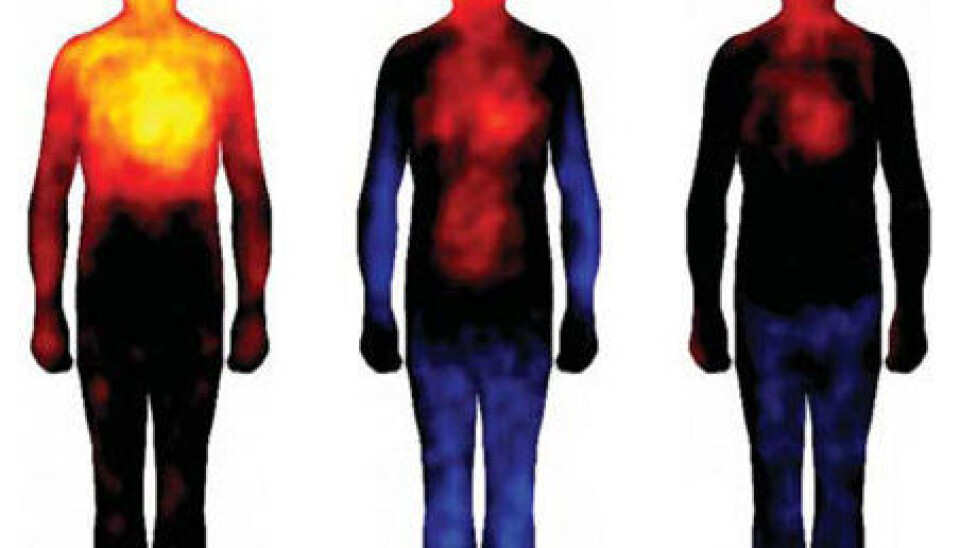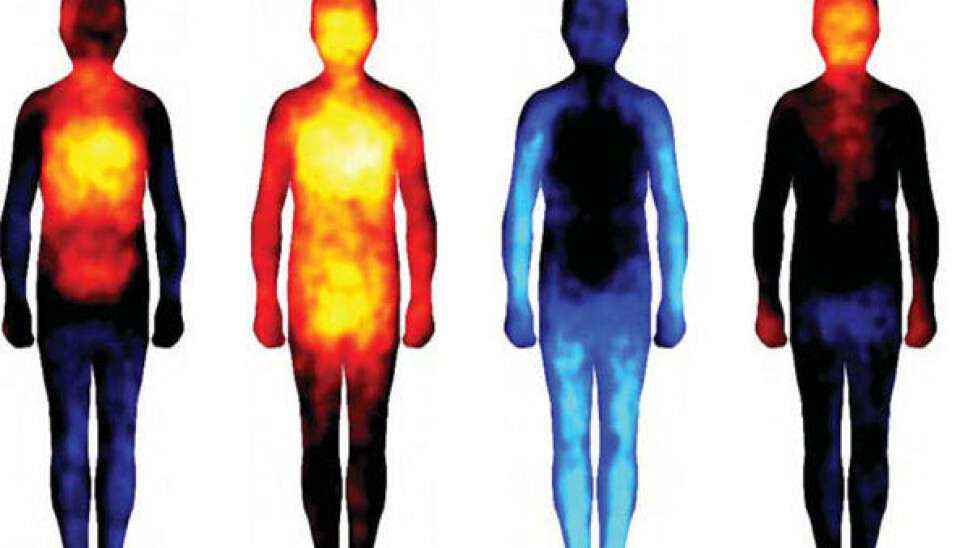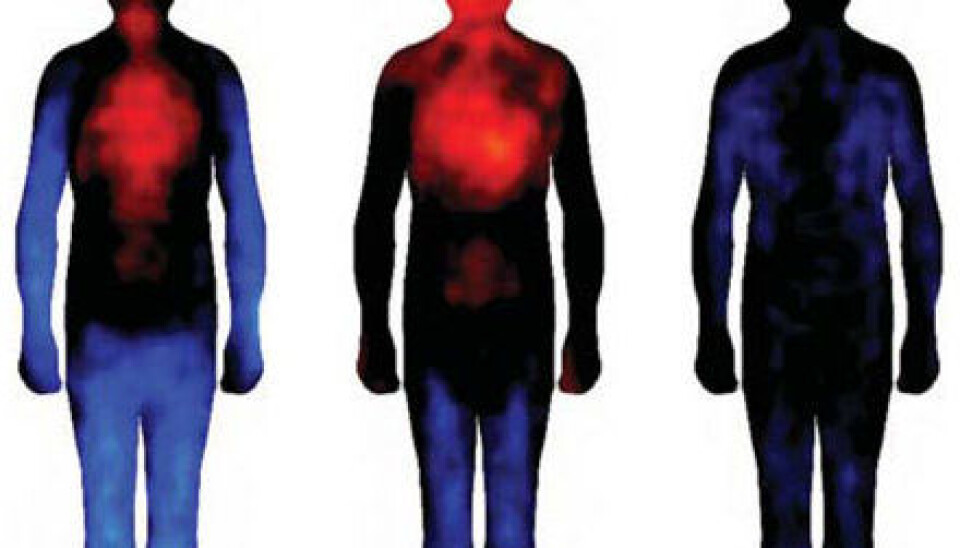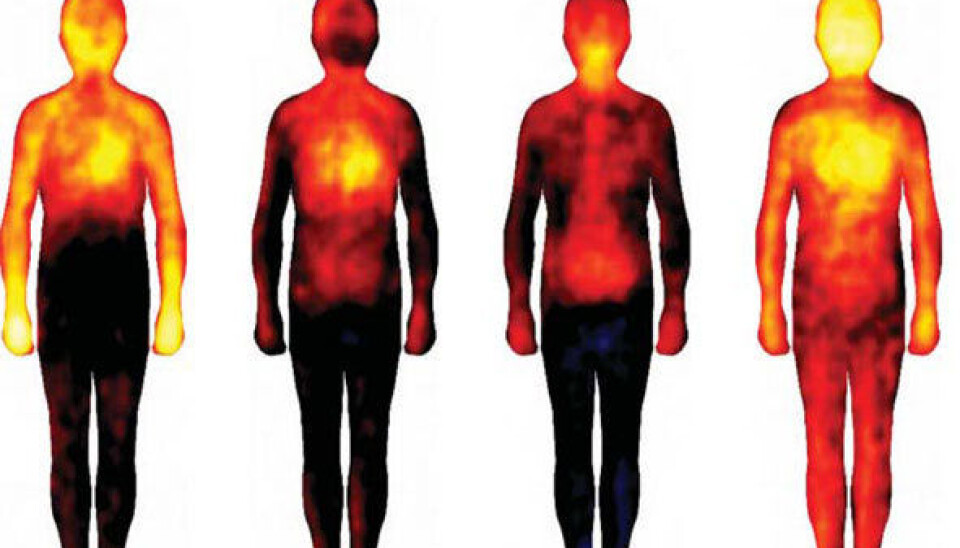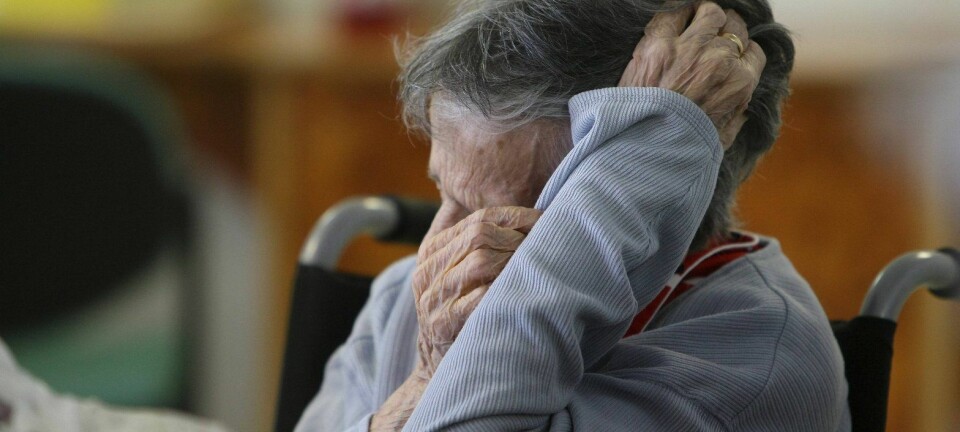Emotions mapped out in the body
Finnish researchers have studied how emotions such as happiness, nervousness and anger feel in the body. The results led to a colourful outline of the physical reactions to emotions.
Feeling green with envy? Or red with anger? Not quite, according to a new study of how our body reacts to various emotions.
The body maps in the above photo gallery are based on 701 study participants, who were asked to describe how they experienced emotions such as happiness, shame, love and depression.
They were shown two silhouettes of bodies alongside emotional words, stories, movies or facial expressions, and were then asked to colour the bodily regions whose activity they felt increasing or decreasing while viewing each stimulus. They were also asked to colour those regions where the body’s reaction was slower and weaker.
This enabled the researchers to map out 14 different emotions.
The results are published in the journal PNAS.
Emotions are the same in Scandinavia as in Taiwan
The researchers, from Aalto University in Finland, used participants from Finland, Sweden and Taiwan to demonstrate that emotions are represented in the somatosensory system as culturally universal categorical somatotopic maps.
The 14 emotions were divided into three groups:
- Six basic emotions
- Seven complex emotions
- One neutral emotion
The maps show the most active reactions to emotions highlighted with yellow and red, while the slow or absent reactions are illustrated with shades of blue.
The researchers hope their findings will help us better understand mood swings, depression and anxiety.
-----------------------
Read the Danish version of this article at videnskab.dk
